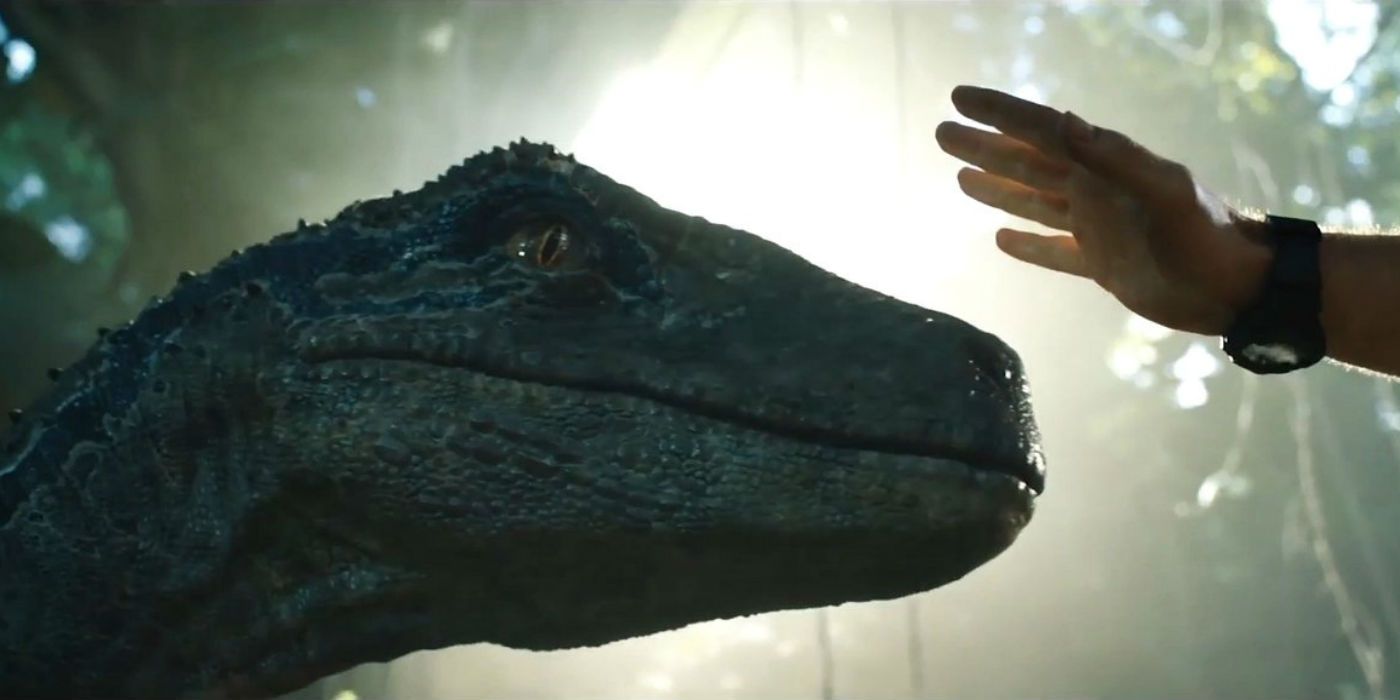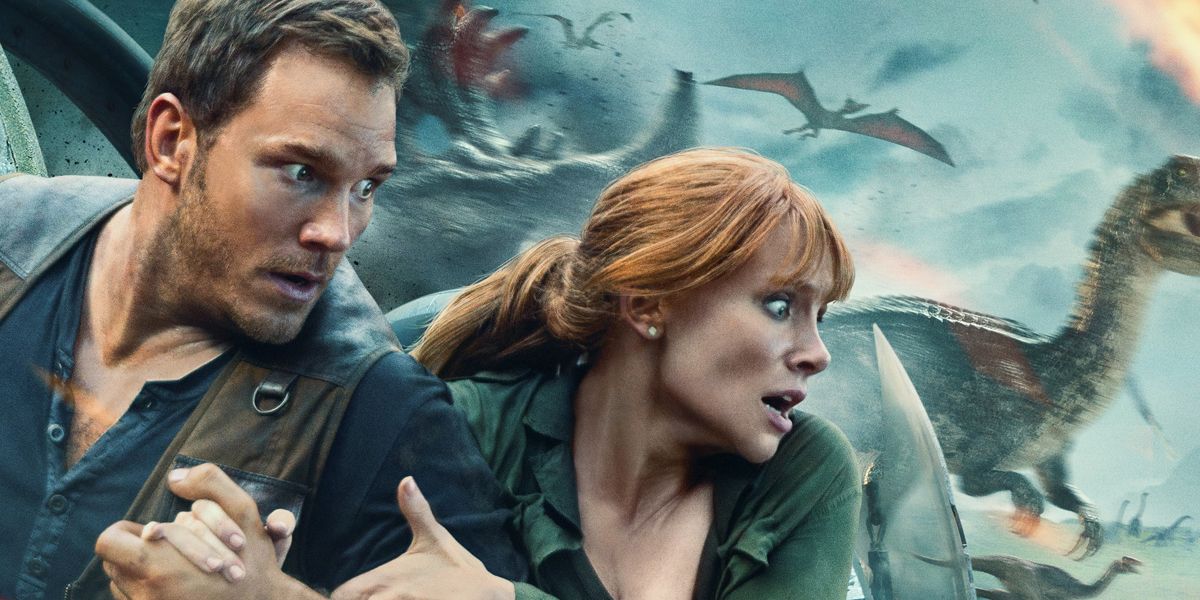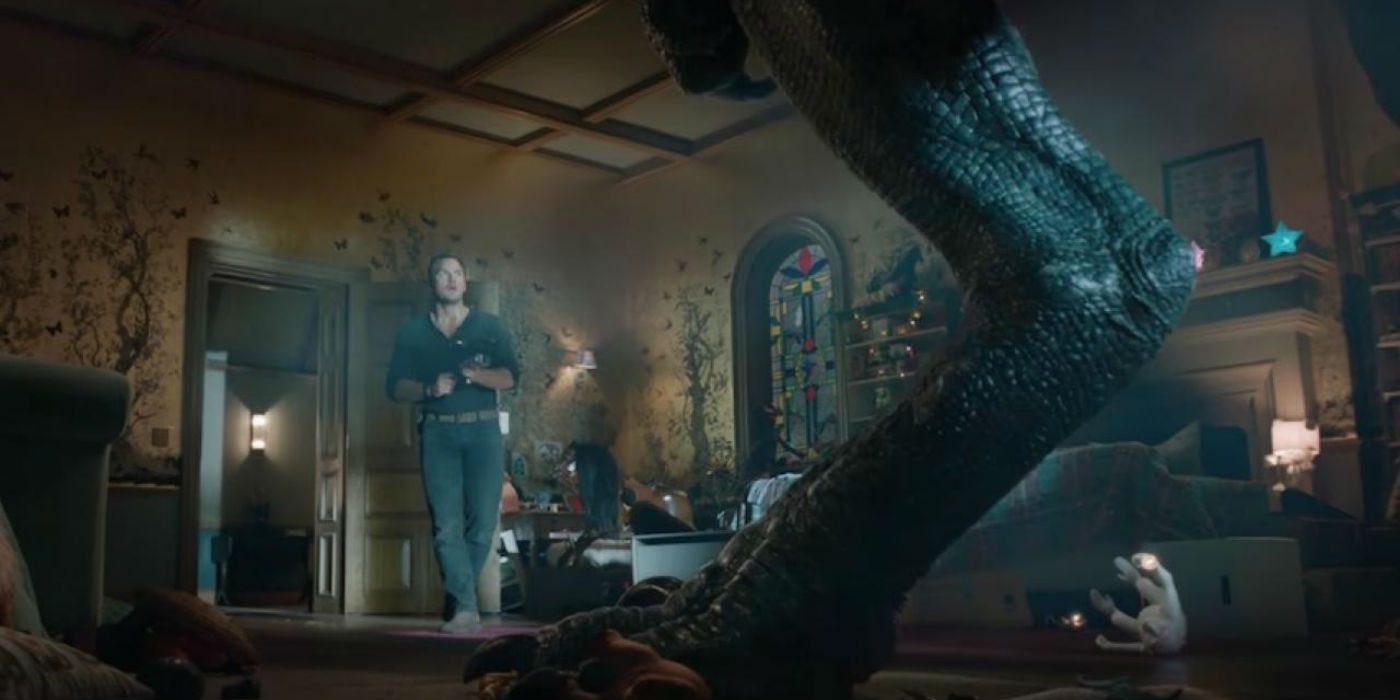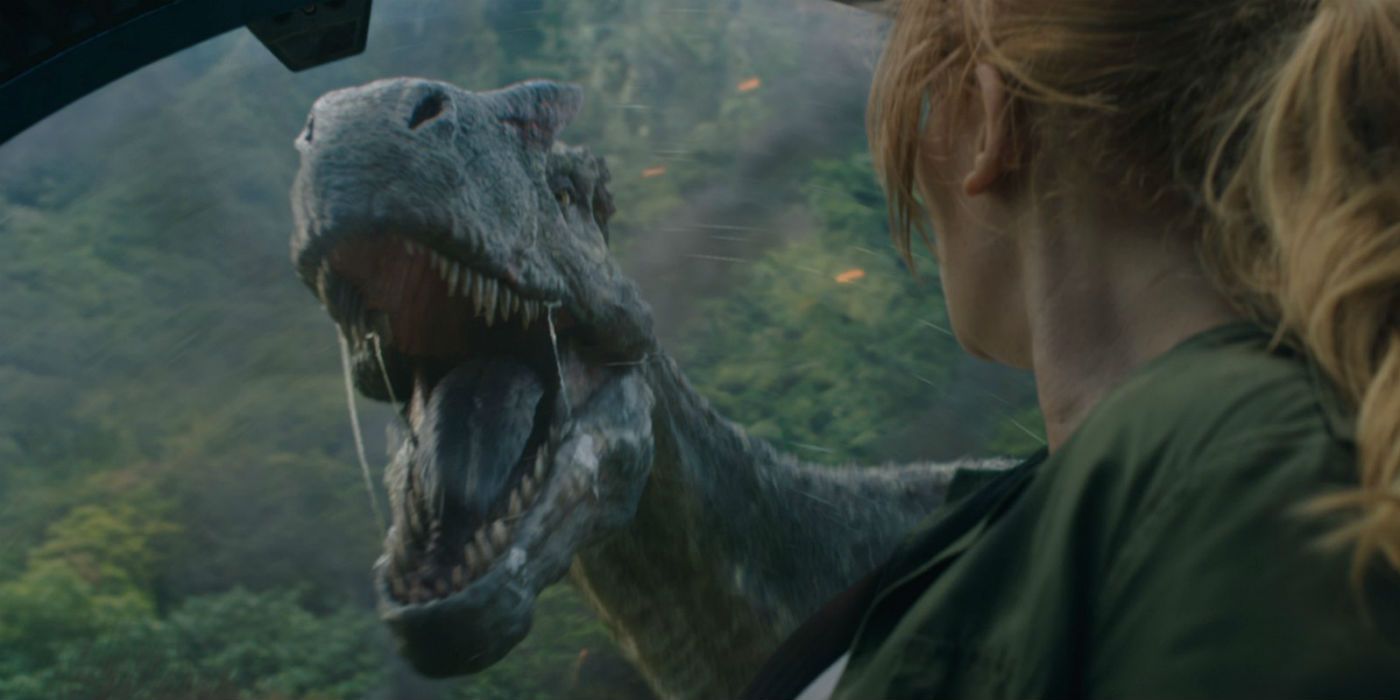Any director of a Jurassic film has a lot to live up to, given that the first two movies in the franchise were directed by genuine legend Steven Spielberg. Spanish director J.A. Bayona is the latest to fill that chair with Jurassic World: Fallen Kingdom, the direct sequel to 2015's Jurassic World.
Bayona arrived at Jurassic World: Fallen Kingdom having helmed the acclaimed films A Monster Calls, a 2016 dark fantasy, and 2012's The Impossible, about the 2004 Indian Ocean tsunami. For Fallen Kingdom, which opened with a $150 million weekend at the box office, he brought prominent touches of horror to the film, along with plenty of empathy for the cloned dinosaurs who didn't ask to be in the situation they're in. As Bayona puts it, "It's about accepting the thing that we don't understand."
RELATED: How Jurassic World: Fallen Kingdom Sets Up the Sequel
CBR talked one-on-one with Bayona in-depth about the film, including the intimidation factor that comes with following a movie that grossed $1.67 billion dollars, the importance of kids in the Jurassic Park franchise and working with Jurassic World director Colin Trevorrow to bring this sequel to life.
CBR: The first thing I'm curious about is, knowing how big this franchise is and knowing how successful the last film was, how much was the intimidation factor in taking this on? Was there anything you were hesitant about, or did you jump at the chance?
J.A. Bayona: I have so much respect for the story of any movie that I do, that I didn't feel an extra pressure. Of course it's a big budget and there are a lot of expectations, but at the end, you give yourself pressure about the story and the characters of any movie that you do. I didn't feel very different. But of course, it's a big responsibility. There's a legacy of films, and there are so many people expecting so much for the movie.
Given that, what was it about this movie in particular and the story that it tells that made you excited to take it on -- and confident that it was a good match for your vision and style as a director?
When you think about Jurassic movies, there's always a lot of entertainment and a lot of fun, and I love the suspense moments -- we all remember great moments of suspense in the first two Jurassic Park movies. But it also talks about timely things, that are there from the original books by Michael Crichton. So it's a way of mixing big entertainment while at the same time talking about interesting things that I like.
One thing that's interesting about all of the movies in this franchise is that obviously the dinosaurs are at the forefront, but what makes it a real story are the human characters -- the movie needs to keep them interesting and their relationships compelling. What was that balance like you? What did you focus on to make sure the human characters grounded the story on an emotional level?
I think it's a very interesting question, because this movie is as much about dinosaurs as it is about us. I think that's one of the things that I like about the story. From the very beginning, Colin told me a story that takes the adventure out of the island makes the situation with the dinosaurs a global problem. It's three years after the disaster, and the whole world is talking about dinosaurs. There's a volcano about to erupt, taking the lives of the remaining dinosaurs. It's very emotional. It's not about only dinosaurs -- it's about us. It's affecting us in a very straightforward way. I thought that was very exciting.
This being the second chapter of a trilogy, this presents the Jurassic universe in a way that feels upside down. It's a big twist. It's not only about dinosaurs, it's also about us.
In Fallen Kingdom, the dinosaurs pose a threat and can be scary, but there's also a lot of compassion for them and the situation they're in. What did that aspect mean to you, and how much does that come from you as a person and a stoyteller?
One of the things that I like the most from the first Jurassic World is, the same way the books by Michael Crichton were a reflection of the world we live in, they were also a reflection on entertainment. You can see that not only in Jurassic Park, but also in Westworld -- it's a show that's very relevant nowadays. They're stories of the relationships humans have towards science and new technology, and towards entertainment. In Jurassic World, there was this debate of, how far can we get to deliver what the audience expects from us. This time, it's not about entertainment -- it's about the world. The park is destroyed. It's now about, what is going to be the relationship humans have towards their creation? Which is timely subject matter. I thought that was very interesting and very relevant, the way we talk about the relationship that man has towards science -- always blaming the use of the science, not the science. Science is always a gift.
Page 2: [valnet-url-page page=2 paginated=0 text='The misunderstood Indoraptor, bringing horror to Fallen Kingdom']
The speculative science part of things is again further explored here, with the genetically modified Indoraptor. There's obviously the dinosaurs that existed still on on screen, but audiences are familiar with them at this point -- how important it is to push the genetic modification part, and show something totally new to audiences?
There always should be a dinosaur that's the star of the show. When you think about Jurassic World, there was the Indominus rex, in the first Jurassic Park was the T-Rex and the velociraptors. What I like about this Indoraptor is that it's one step forward in what we saw from the Indominus rex, but it's a rejected creature. It's a prototype that went wrong. Like the rest of the story, it's about empathy. It's about accepting the thing that we don't understand.
The character is introduced as a monster, but at the same time, there's a sense of empathy and feeling sorry about him. I think the ending of the Indoraptor's story, without spoiling anything, there's an echo to the original King Kong -- there's a moment where you understand the creature as it is. You don't see it as a monster, you see it as a character who was rejected, and you can even feel sorry for him.
The Jurassic films have a tradition of young kid characters, since the first, and you see it again in this one with Maisie. Which speaks to the fact that kids love these movies, no matter how intense things might get. How much of a priority was keeping things as kid friendly as possible?
Jurassic Park is a family-friendly franchise. From the very beginning, we had a very special reason to have a kid in this movie. I think Maisie takes the whole concept of this story one step forward. You develop a sense of empathy towards the dinosaurs, and make the audience accept what they don't understand. I think that was very brave and very smart from Colin. Again, the world is upside down, it's the Jurassic universe in a way that you've never seen before, and you're crossing all the red lines -- Maisie is a character that carries on the whole concept of the movie.
The film hits on a lot of genres, and you've worked in a lot of genres -- including horror. There are definitely some moments in the this act that have a horror feel. Was that something you wee consciously drawing on?
You can find horror in the first Jurassic Park. In Steven [Spielberg]'s movies, from Jaws, there's a horror element and a sense of suspense. When I think about the original Jurassic Park movies, this is one of the things that I remember that i liked the most -- the moments of Hitchcockian suspense developed in a really smart movie, and building up the tension gradually, shot by shot. I loved that. The best moments I ever had watching Jurassic movies had those moments of suspense and horror, and Colin and I wanted to get back to that same feeling in this new one.
Speaking of Colin -- he directed the first one, and co-wrote and executive produced this one. How much did you work with him? What was that relationship like?
He's the writer, and he created the whole trilogy. He established the story and the characters, the way the story evolves, and I was trying to make the best way to present the story to the audience. We worked together to make the best of every moment in the movie.
RELATED: How Fallen Kingdom Completely Changed the Jurassic World Franchise
What are you looking for next as a director -- a quieter smaller-scale film, or to go even bigger?
I think it's going to get complicated to get bigger than Jurassic World! [Laughs] I feel very lucky that I'm coming from Europe, and I do movies in Europe, and at the same time I'm honored to get these offers from Hollywood. For me, it's a question of combining both worlds. I still don't know what I'm going to do next, and I'm considering offers from Hollywood and also developing in my own country. I feel very comfortable in the position of being able to work in both worlds, that are so different from each other.
Jurassic World: Fallen Kingdom is in theaters now.




